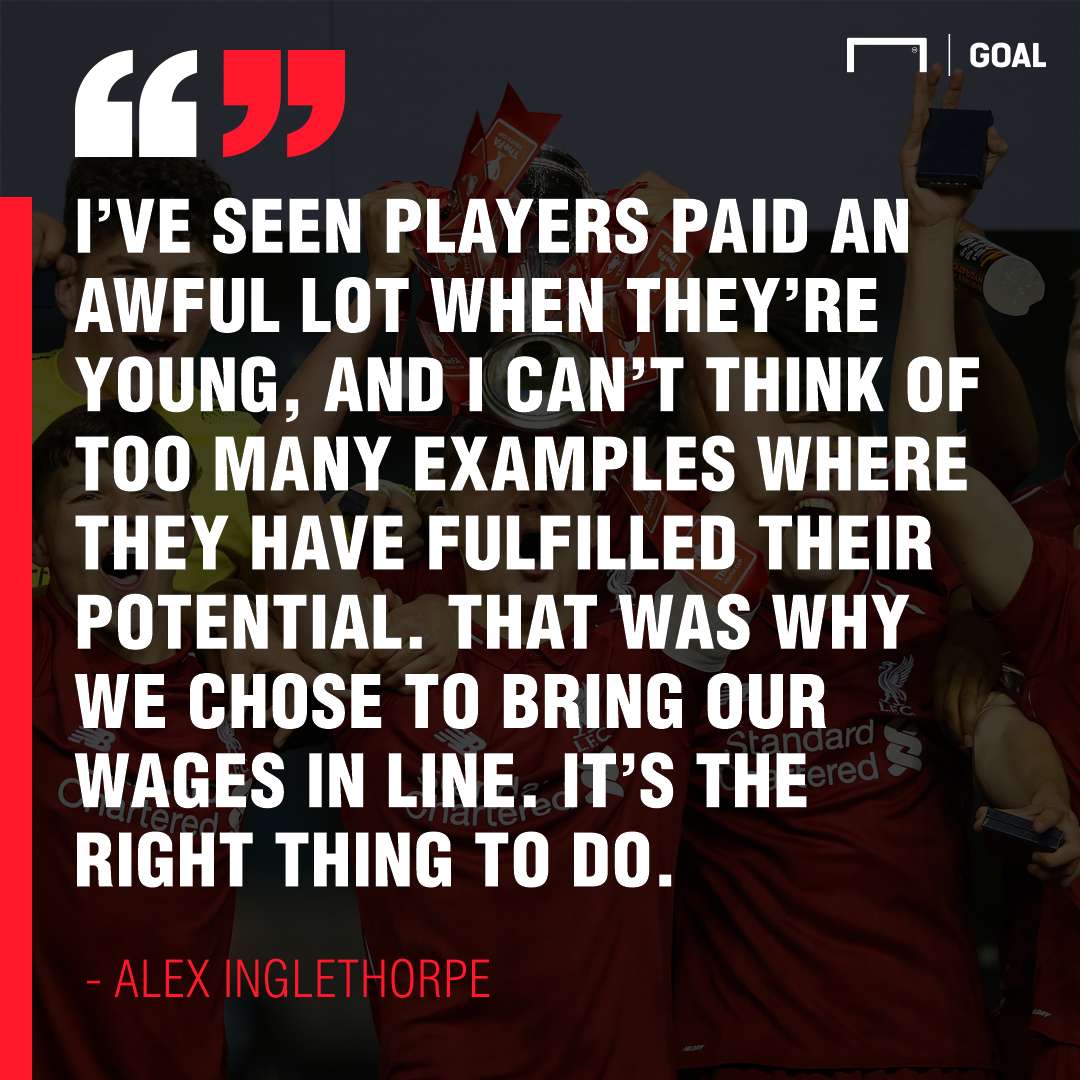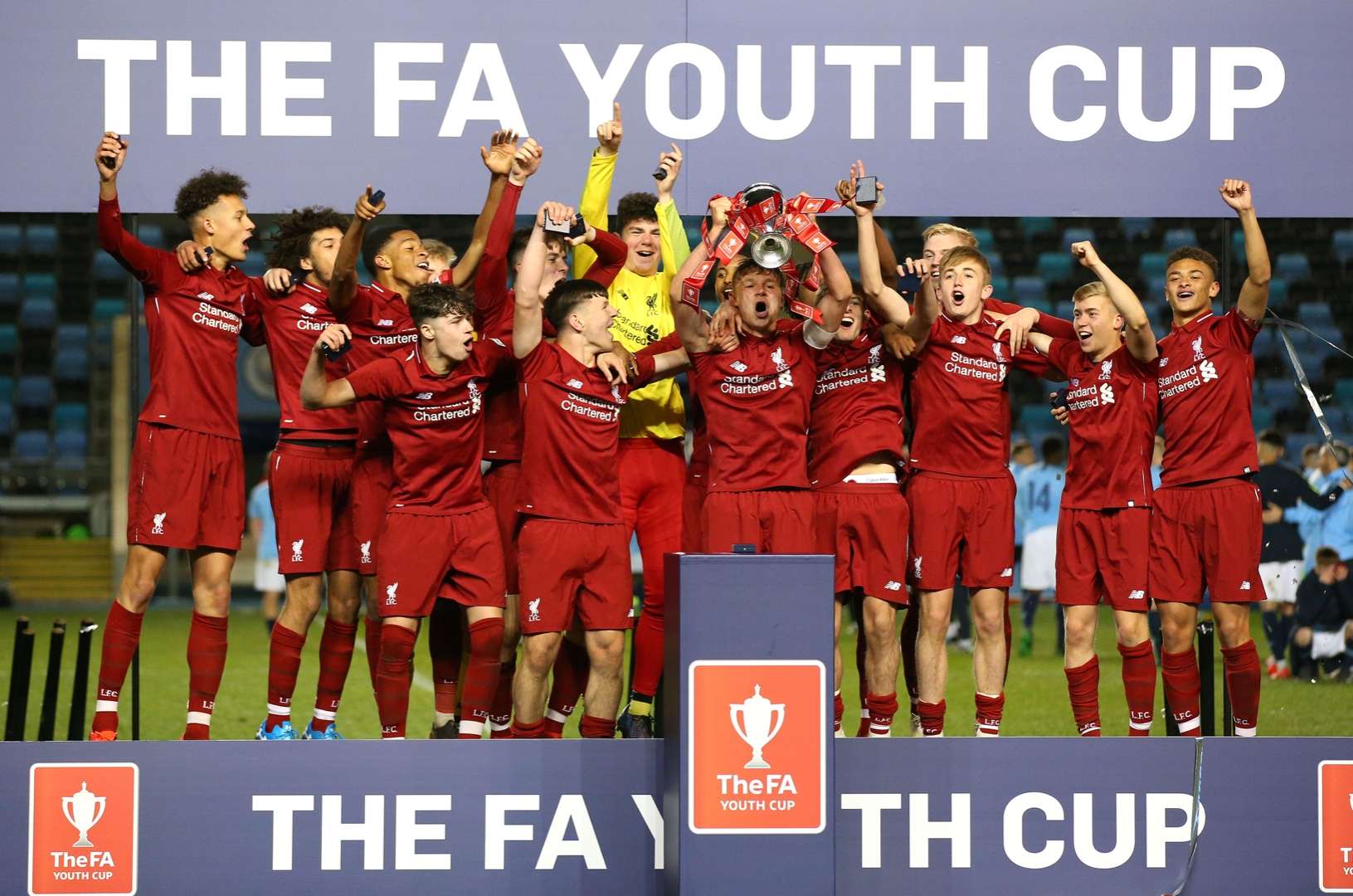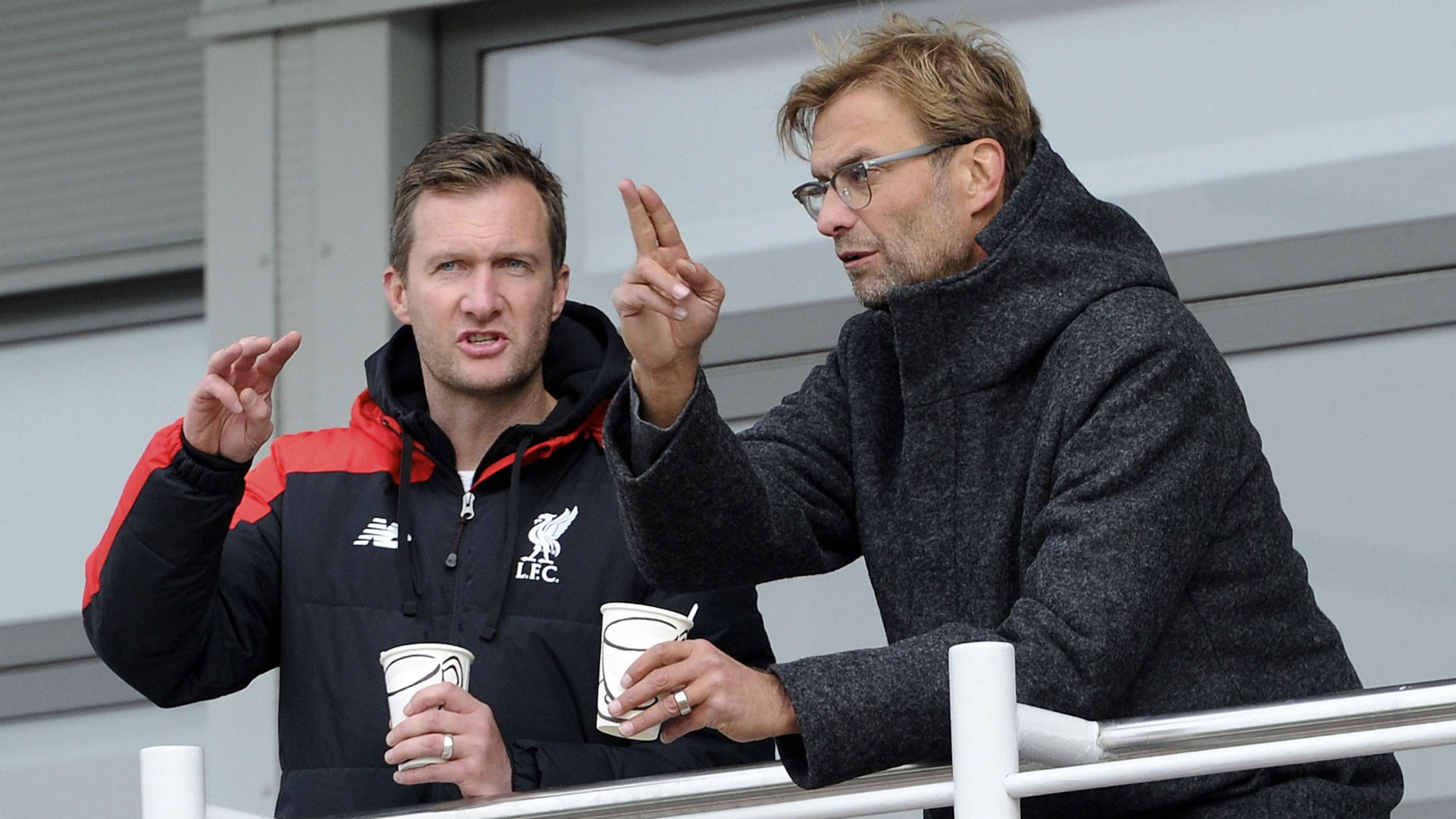The faces jump out at you.
Steven Gerrard, Raheem Sterling, Trent Alexander-Arnold.
Visit Liverpool’s Academy in Kirkby and you’ll glimpse the past as well as the future. It’s more than 20 years old now, a place of hopes and dreams, growth and development.
A place where footballers are made.
Inside, the office wall of Alex Inglethorpe, the Academy director, charts the progress of the 170 youth players contracted to the Reds at present.
A giant magnetic board displays the faces of each and every young hopeful, from under-9s through to under-23s. Each age-group has around 18 counters, each of which bears the face of an individual player. Some of the haircuts are interesting, to say the least.
A few years back, there would have been many more counters, many more players. The decision Liverpool made to reduce numbers at Kirkby by around 40 per cent was debated at the time, but it is starting to bear fruit.
“It comes down to common sense, really,” Inglethorpe says, settling down for an exclusive, in-depth chat with Goal.
“Ideally, you want to be working off a pyramid, where the numbers get fewer as you get closer to the first-team. We were working off more of a rectangle!”
The benefits, he says, are clear. Boys who are never going to make it at Liverpool are not kept around, treading water and being fed false hope. Coaches are no longer having to spread game-time round among squads of 20 or 25, while those who do have first-team potential are easier to spot and to challenge.
“It’s easier to promote from within,” says Inglethorpe. “You’re creating opportunities for boys who need different challenges. It’s stopped players from stagnating, which is what was needed.”
Inglethorpe is equally matter-of-fact when speaking about the other big change he has overseen during his time as Academy director – the introduction of a salary cap for first-year professionals.
It was a bold move. It means the likes of Paul Glatzel, Bobby Duncan and Rhys Williams, stars of the Reds’ FA Youth Cup-winning side, will earn around £40,000 per year after signing their first pro deals recently. Not insignificant for a teenager, of course, but at a time where spending across English football is reaching unprecedented levels, is it not a risk for a club like Liverpool, which can ill-afford to see talent picked up by rival clubs?
“Absolutely,” says Inglethorpe. “You have to be careful that you don’t miss out on players, and we are in a very competitive part of the world.
“But you have to remember, you’re dealing with children. I don’t know how you were at 17? I was quite sensible and not too flash or ostentatious, but give me X thousand pound a week and I am not sure I could have coped. It would have changed me.
“I’ve seen players paid an awful lot when they’re young, and I can’t think of too many examples where they have fulfilled their potential.
“But I’ve seen players paid enough to live on, wages which kept them humble and hungry. Those players, I have quite a long list of the ones who came through. They were players who weren’t given too much too young, who weren’t paid to fail. There are enough examples in the game now of players who have been kept hungry.
“That was why we chose to bring our wages in line. It’s the right thing to do.”
 Goal
Goal
He is quick to add, of course, that players who significantly exceed expectations, who progress to the first-team and stay there, will be rewarded for their progress. "If you are training and playing with the first team," he says, "you will be looked after."
Alexander-Arnold is one such example. At 20, he is set to start his second Champions League final. He is already a full England international, with a World Cup under his belt, and who was named in the PFA Team of the Year this season. He is, in every sense, the poster boy for what Liverpool are trying to achieve at the Academy.
“Trent probably hasn’t done us any favours!” Inglethorpe jokes, suggesting his rise will lead to impatience among those looking to follow in his footsteps. “But what he has done is he’s shown us it is possible.
“There’s no blueprint, no book I can give you to say ‘this is how you make a player’. Some players like Trent can, through talent and a little bit of luck, find a way to get in and stay in. But that’s hard, and not everyone can do it. Others may need to do it a different way, they may need 200 games on loan first. Everyone's different.”
Inglethorpe admits he can be a hard man to please, and that comes across as he speaks. He praises Barry Lewtas’ Youth Cup-winning side, and reflects on the senior debuts of Ki-Jana Hoever, Curtis Jones and Rafa Camacho in January. His words, though, come with a warning.
“It’s a process, not an outcome,” he says. “We don’t want a player’s best moment in football to be their debut, or winning the Youth Cup. If that’s the highlight, then we’ve failed. It should always be ‘what’s next?’
“I don’t look at league tables, because I think it alters the opinion you have and the decision-making process.
“I’m very lucky. The owners – Mike Gordon, Michael Edwards – they will never ask me where we are in the league. If we are top of the league or we win the Youth Cup, I’m never going to get a text or an email or a phone call saying ‘well done’. The only question I get asked consistently is ‘who’s next?’
“We could win the Youth Cup for the next 10 years running, and if there’s no player coming through to the first-team then I am out of a job, and rightly so.”

Five years into his role as Academy director, and almost seven since he arrived on Merseyside, Ingelethorpe, clearly, is aware of the pressures which come with his job.
“I appreciate it, and I’m very lucky,” he says. “It’s an exciting time, especially with the first-team moving to Kirkby [in 2020].
“Sometimes you have to recognise when you’ve got it good, and when the club has got it good.
“Because one thing that football teaches you is that it won’t stay that way forever.”


